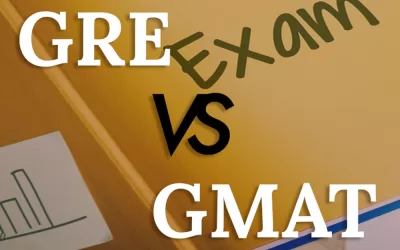 The Graduate Record Examination (GRE) is a pivotal step for those pursuing graduate education. As a standardized test, the GRE evaluates candidates’ readiness for advanced academic programs across diverse disciplines.
The Graduate Record Examination (GRE) is a pivotal step for those pursuing graduate education. As a standardized test, the GRE evaluates candidates’ readiness for advanced academic programs across diverse disciplines.
Achieving a competitive score on the GRE is paramount to securing admission to esteemed graduate schools. This comprehensive guide delves into the strategies and techniques essential for mastering the GRE and attaining success.
Mastering the GRE:
Verbal reasoning, quantitative reasoning, and analytical writing are the three main components of the GRE. Different skills that are essential for success in graduate-level coursework are assessed in each section. It is important to understand that the exam is adaptive, meaning that the difficulty of a given question changes depending on past answers. Setting realistic goals also requires an awareness of the GRE scoring methodology.
The verbal reasoning and quantitative reasoning sections are scored on a scale of 130–170 in one-point increments, while the analytical writing section is scored on a scale of 0-6, in half-point increments. Understanding how admissions committees view scores can help you set realistic goals and plan your preparation strategy.
Importance of GRE Preparation:
It is impossible to overestimate the importance of rigorous GRE preparation. Beyond displaying academic prowess, a well-prepared candidate demonstrates a deep commitment to their academic goals. This preparation journey is not just about the test but also about the personal growth and sense of accomplishment that comes with it. Good preparation boosts self-assurance, reduces test anxiety, and results in higher scores, making you more competitive for admission to prestigious graduate schools.
Setting the Foundation: Creating a Study Plan:
Creating a customized study schedule is not just a task; it’s a powerful tool that puts you in control of your GRE preparation. Start by evaluating your performance in each GRE section. Establish attainable objectives and benchmarks, allotting time for study sessions while guaranteeing breaks for maximum recall. A well-organized study schedule guarantees a thorough review of every GRE subject but also aids in keeping focus throughout the test-taking process, giving you a sense of control and empowerment.
Essential study materials:
It’d be important to select suitable study materials for adequate GRE preparation. Utilize official GRE study guides, practice tests, and online resources to familiarize yourself with the exam format and question types. Official GRE materials accurately represent the exam, facilitating realistic practice and assessment. Consider enrolling in GRE prep courses or workshops tailored to your learning style and preferences.
Test-Taking Strategies:
Not only does knowledge matter, but so does using efficient test-taking techniques to ace the GRE. Throughout the exam, practice time management to finish each section in the allocated amount of time. Learn how to answer different questions by becoming familiar with elimination and strategic guessing techniques. Develop strategies for reducing test anxiety, such as deep breathing or positive self-talk, and staying focused throughout the exam, such as taking short breaks between sections or using visualization techniques. These strategies can help you maintain a clear mind and perform at your best.
Writing the Analytical Writing Section:
The analytical writing section evaluates your ability to articulate complex ideas and construct persuasive arguments. Familiarize yourself with the two essay tasks: analyze an issue and analyze an argument. Structure your essays logically, providing clear thesis statements, supporting evidence, and coherent reasoning.
For instance, in the Analyze an Issue task, you might start with an introduction that presents the issue and your position, followed by body paragraphs that provide supporting evidence and counterarguments, and a conclusion that restates your position and summarizes your arguments. Practice writing timed essays to hone your skills and develop a consistent writing style.
Mastering Verbal Reasoning:
Verbal reasoning encompasses a range of question types, including text completion, where you fill in the blanks in a passage with the most appropriate words; sentence equivalence, where you choose two words that are most similar in meaning; and reading comprehension, where you answer questions based on a passage.
Strengthen your vocabulary through regular reading and word-learning exercises. Develop effective strategies for approaching each question type, such as identifying context clues and summarizing main ideas. Practice active reading techniques to improve comprehension and speed.
Conquering Quantitative Reasoning:
Quantitative reasoning evaluates your mathematical proficiency and problem-solving abilities. Review fundamental math concepts, formulas, and techniques commonly tested on the GRE. Practice solving quantitative problems under timed conditions to improve speed and accuracy. Learn to interpret data presented in various formats, such as tables, graphs, and charts. Develop strategies for tackling complex problems and avoiding common pitfalls, such as careless errors.
Practice makes perfect.
Regular practice is not just a routine; it’s a pathway to GRE mastery. Incorporate daily practice sessions into your study routine using official GRE practice materials and simulated exams. Analyze your performance on practice tests to identify areas of weakness and track your progress over time.
Review incorrect answers thoroughly to understand your mistakes and learn from them. Consistent practice builds confidence and familiarity with the exam format, ultimately leading to improved performance on test day. With each practice, you’ll feel more ready and confident for the GRE.
Test Day Tips for Mastering the GRE:
Not only does knowledge matter, but so does using efficient test-taking techniques to ace the GRE. Throughout the exam, practice time management to finish each section in the allocated amount of time. Learn how to answer different questions by becoming familiar with elimination and strategic guessing techniques.
Develop strategies for reducing test anxiety, such as deep breathing or positive self-talk, and staying focused throughout the exam, such as taking short breaks between sections or using visualization techniques. These strategies can help you maintain a clear mind and perform at your best.
 Conclusion:
Conclusion:
Mastering the GRE is a challenging but attainable objective with the appropriate strategy and commitment. You can increase your chances of success and acquire the exam score you want by using the tactics described in this article. Remind yourself to remain motivated, focused, and confident in succeeding. You are well on your way to achieving your academic goals with thorough planning and preparation. Your success is within reach if you stay committed to these steps.
Graduate Record Examinations: GRE Coaching Classes – GRE Coaching Institute in Mumbai
For appointments, Call: 9320505657 / 9320309897 / 9320608844
Frequently Asked Questions About Mastering the GRE
What is the GRE, and why is it important?
The GRE, a globally recognized standardized test, is your gateway to prestigious graduate programs. It’s not just a test but a measure of your potential for success in graduate school. By assessing your verbal reasoning, quantitative reasoning, and analytical writing skills, it helps you stand out in the competitive admissions process. A strong GRE score can open doors to your dream program.
What are the different sections of the GRE?
The GRE consists of three main sections: Verbal Reasoning (vocabulary and reading comprehension), Quantitative Reasoning (math skills), and Analytical Writing (essay writing). Each section measures different skills that are essential for graduate studies.
How is the GRE scored?
Verbal and Quantitative Reasoning are scored on a scale of 130–170, while Analytical Writing is scored on a scale of 0–6. The scoring is adaptive, meaning the difficulty of questions can change based on your performance.
Why is GRE preparation so important?
Preparation: Your Key to a Competitive Score Why is GRE preparation so important? It’s not just about the test; it’s about demonstrating your commitment to your academic goals, building your confidence, and equipping yourself with the strategies and knowledge needed to tackle the exam effectively.
How can Growth Center help me with GRE preparation?
At Growth Center, we understand the importance of the GRE in your academic journey. That’s why we offer comprehensive GRE coaching programs designed to cover all sections of the test. Our expert guidance, personalized study plans, comprehensive study materials, and mock tests are all geared towards simulating the actual exam experience and helping you achieve your best possible score.
How do I create an effective GRE study plan?
Creating a Study Plan: Your Roadmap to Success How do I create an effective GRE study plan? Start by assessing your strengths and weaknesses in each section. Set realistic goals, allocate dedicated study time, and schedule regular breaks. A structured plan will not only help you stay on track but will also give you a sense of control and confidence as you cover all the necessary topics.
What study materials should I use?
Use official GRE study guides, practice tests, and online resources. Consider enrolling in a Growth Center GRE prep course for expert instruction and personalized feedback.
What test-taking strategies can help me succeed?
Learn effective time-management techniques to pace yourself during the exam. Familiarize yourself with different question types and practice elimination strategies. Develop ways to manage test anxiety and maintain focus throughout the exam.
How can I improve my performance in the Analytical Writing section?
Practice writing timed essays on various topics to develop your writing skills and speed. Focus on clear organization, strong arguments, and proper grammar and punctuation.
How can I improve my vocabulary for Verbal Reasoning?
Read widely, use vocabulary-building apps or flashcards, and practice with GRE-specific vocabulary lists.
What math skills should I review for Quantitative Reasoning?
Focus on basic arithmetic, algebra, geometry, and data analysis. Practice solving various problem types and learn to interpret data presented in different formats.
How often should I practice for the GRE?
Aim for consistent, daily practice sessions. Incorporate official practice tests and simulated exams into your routine to track your progress.
What are some tips for the test day?
Get a good night’s sleep, eat a healthy breakfast, and arrive early at the test center. Manage your time wisely during each section, and don’t spend too much time on any single question. If you get stuck, use educated guessing.
How long does it take to prepare for the GRE?
The ideal preparation time varies depending on individual strengths and weaknesses. Most students benefit from a 3-6-month preparation period.
Is the GRE required for all graduate programs?
While many graduate programs require the GRE, some have alternative requirements or may waive the GRE under certain circumstances. Check the specific requirements of your desired programs.
How many times can I take the GRE?
You can take the GRE once every 21 days, up to five times within any continuous rolling 12-month period.
What is the cost or fee of the GRE test?
The GRE General Test fee is $220.
Can I send my GRE scores to multiple universities?
Yes, you can send your GRE scores to up to four universities for free on test day. Additional score reports can be sent for a fee.
What is a good GRE score?
A “good” GRE score depends on the specific program and university you’re applying to. Research the average scores of admitted students to your target programs.
How long are GRE scores valid?
GRE scores are valid for five years.

 Conclusion:
Conclusion:




